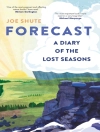In Obscene Pedagogies , Carissa M. Harris investigates the relationship between obscenity, gender, and pedagogy in Middle English and Middle Scots literary texts from 1300 to 1580 to show how sexually explicit and defiantly vulgar speech taught readers and listeners about sexual behavior and consent.
Through innovative close readings of literary texts including erotic lyrics, single-woman’s songs, debate poems between men and women, Scottish insult poetry battles, and The Canterbury Tales, Harris demonstrates how through its transgressive charge and galvanizing shock value, obscenity taught audiences about gender, sex, pleasure, and power in ways both positive and harmful. Harris’s own voice, proudly witty and sharply polemical, inspires the reader to address these medieval texts with an eye on contemporary issues of gender, violence, and misogyny.
Daftar Isi
Acknowledgments
List of Abbreviations
Introduction: The Pedagogy of Obscenity
1. ‘Felawe Masculinity’: Teaching Rape Culture in Chaucer’s Canterbury Tales
2. ‘With a cunt’: Obscene Misogyny and Masculine Pedagogical Community inthe Middle Scots Flyting
3. Pastourelle Encounters: Rape, Consent, and Sexual Negotiation
4. Pedagogies of Pleasure: Peer Educationin Medieval Women’s Songs
5. Songs of Wantonness: Voicing Desirein Two Lyric Anthologies
Conclusion: ‘Grab ‘em by the pussy’: Obscene Pedagogies, Past and Present
Appendix to Chapter 4: Songs of Lusty Maidens
Appendix to Chapter 5: Songs of Wantonness
Bibliography
Index
Tentang Penulis
Carissa M. Harris is Associate Professor of English at Temple University.












